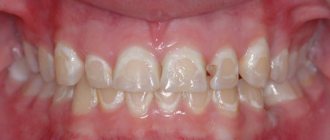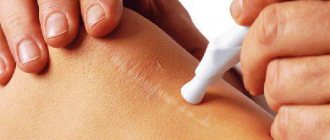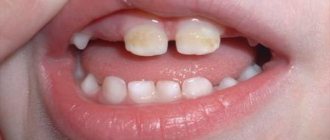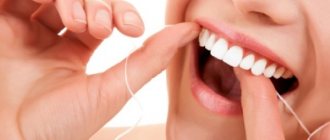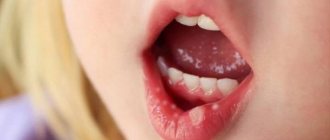What is xerostomia
Xerostomia is a symptom of dry mouth . This condition develops due to insufficient saliva production to moisturize the oral cavity.
Normally, any adult can encounter such sensations, not to mention the elderly (stress, lack of water). However, if an elderly person is constantly bothered by dry mouth, especially at night, at rest, then this indicates possible health problems.
Xerostomia is a common complaint among older adults (about 30%).
The level of saliva secretion by the salivary glands decreases significantly with age, which, in turn, can cause the development of xerostomia. Such dysfunction in old age is mainly due to the influence of various systemic diseases, the effects of medications, and side effects of radiation therapy in the head and neck area.
Signs of disease, accompanied by dryness, bitterness, burning in the mouth
Factors that provoke inadequate functioning of the salivary glands can be short-term, long-term and permanent. A short-term phenomenon most often goes away on its own and does not entail the development of serious pathologies.
Prolonged dryness in the mouth, which is accompanied by bitterness and burning, can occur in the presence of the following diseases:
- The appearance of foci of inflammation in the head and spine.
- Oral diseases and dental problems caused by a lack of saliva to maintain healthy microflora.
- Diseases of the gastrointestinal tract: enteritis, lazy stomach syndrome, colitis, gastritis, stomach ulcers, dysbacteriosis.
- Inflammatory processes in the liver and biliary system.
- Disruption of the endocrine system.
- Arterial hypotension.
- Menopause.
- HIV AIDS.
A responsible attitude towards one’s own health means taking into account all accompanying symptoms. This will help prevent the development of complications in the presence of any of the diseases.
Main causes of dry mouth in older people
The symptom of dry mouth is a common symptom of type 1 and type 2 diabetes. This occurs due to side effects of medications taken and elevated blood sugar levels.
The development of diabetic neuropathy can also cause dry mouth, this is associated with disorders of the nervous system due to damage to small blood vessels in diabetes.
However, diabetes is not the only cause of xerostomia. In medicine, there are a number of diseases and conditions in which the salivary glands reduce the production of their secretions.
Let's take a closer look at the other main causes of dry mouth:
- side effects of drugs. In total, almost four hundred drugs have been identified that suppress the secretion of saliva, including such groups of drugs as antihistamines, analgesics, decongestants, antihypertensives, diuretics, antidepressants;
- disruption of the functioning of sensory receptors located in the oral cavity;
- disturbances in the trophism of the oral mucosa;
- the influence of toxins, both coming from outside and those formed as a result of the vital activity of his own body;
- disturbances in the electrolyte balance of the body and its water metabolism;
- the mucous membrane of the oral cavity is mechanically dried out by the surrounding air, while the tongue sticks to the palate;
- Hormonal imbalances have a negative impact on the functioning of the glands that produce saliva.
The presence of diseases that impair the proper functioning or anatomical integrity of the salivary glands:
- diabetes mellitus type 1 and 2 (the main cause of dry mouth);
- renal failure;
- Sjögren's syndrome;
- lymphogranulomatosis (Hodgkin's disease);
- Parkinson's disease;
- Alzheimer's disease;
- essential tremor (Meniere's disease);
- intestinal obstruction;
- acute and transient cerebrovascular accidents;
- inflammation of the trigeminal nerve;
- cholecystitis;
- appendicitis.
For diabetes
Dry mouth (a biofluid analysis will help determine the causes of the disease) causes discomfort if it bothers you for a long time.
The level of glucose in the blood may change, which will reduce the body's protective functions and lead to dehydration.
The presence of diabetes mellitus obliges the patient to periodically be under the supervision of a doctor, undergo examinations and receive the necessary recommendations. Taking insulin medications will help maintain blood sugar levels and relieve additional discomfort such as dry mouth and general malaise.
Clinical manifestations of xerostomia
Dry mouth occurs due to a decrease in the amount of saliva in the mouth. Signs of xerostomia include:
- rough, dry tongue;
- burning tongue;
- lack of moisture in the mouth;
- frequent pain in the mucous membrane;
- chapped lips;
- inflammation in the oral cavity;
- infections in the oral cavity;
- difficulty swallowing,
What does the feeling of bitterness in the mouth with xerostomia at night indicate?
This symptom, combined with dryness of the oral mucosa, can develop in two main scenarios:
- disruption of the functioning of the biliary system;
- disorders of the secretion and evacuation of hydrochloric acid and gastric digestive juice.
In both cases, the normal removal of aggressive secretions from the digestive tract is disrupted. As a result, stagnation occurs, leading to the gradual absorption into the blood of products formed during their breakdown, which is reflected in the composition of saliva.
Most often this condition is caused by the following pathologies:
- cholecystitis, both acute and chronic.
- dyskinesia of the biliary tract, subject to stagnation of bile.
- chronic forms of toxic and viral hepatitis.
- stomach ulcer;
- gastritis;
- chronic pathologies of the pancreas, leading to problems with bile drainage.
The bitter components of digestive juices can be deposited directly in the oral mucosa.
What does plaque on the tongue mean with xerostomia?
It is not for nothing that the tongue is called a mirror of the condition of the abdominal organs, because by the presence and characteristics of plaque on it, one can obtain a lot of information about the functional state of the entire gastrointestinal tract. Almost always such changes are accompanied by dry mouth.
This combination of symptoms allows us to suspect the presence of the following pathologies:
- gastritis;
- gastroduodenitis;
- gastroesophageal reflux disease (GERD);
- reflux esophagitis;
- peptic ulcer of the stomach and duodenum;
- nonspecific ulcerative colitis;
- enterocolitis.
If the symptoms listed above are also accompanied by sharp pain, this indicates the occurrence of an acute condition:
- appendicitis, both simple and complicated;
- cholecystitis;
- chronic pancreatitis;
- pancreatic necrosis of the pancreas;
- acute intestinal obstruction;
- cholecystopancreatitis.
All of these diseases are considered emergencies; treatment should begin immediately, and most often, help will consist of surgical intervention.
Consequences of constant dryness
Saliva is necessary for a person to constantly moisturize and cleanse the oral cavity. If you do not understand the cause of dysfunction of the salivary glands in a timely manner, then everyday life will be overshadowed by unpleasant sensations.
Insufficient saliva production subsequently leads to adverse consequences:
- The appearance of cracks in the corners of the lips.
- The appearance of bad breath.
- The occurrence of disease of teeth and gums.
- Burning tongue.
- The taste of food begins to change.
- Partial or complete atrophy of the mucosa.
- Hoarse voice.
- Deterioration of diction.
Particular attention should be paid if dry mouth occurs along with the appearance of an unpleasant aftertaste, which can be metallic, bitter or sour.
Diagnostics
When diagnosing, a number of the following examinations are carried out:
- sialometry;
- salivary gland biopsy.
For patients in whom the presence of dry mouth remains unclear, sialometry can be performed by placing saliva collection devices behind the openings of the main ducts and then stimulating salivary flow with citric acid or by chewing paraffin wax.
Basically, the secretion of saliva from the duct of one parotid gland is 0.4–1.5 ml/min. Monitoring the rate of saliva production can also help determine response to treatment.
The cause of xerostomia is often obvious, but if the causes and precipitating factors are not clear to specialists, further evaluation should be carried out with a biopsy of the minor salivary glands (to detect Sjögren's syndrome, Besnier-Beck-Schaumann disease, amyloid degeneration, tuberculosis or neoplastic diseases). The lower lip is a convenient site for salivary gland biopsy.
Side effect of antibiotics
For some diseases, antibiotics are the only treatment. Despite their high effectiveness, antibiotics can cause a number of negative side reactions.
The main negative consequences include:
- disturbance of intestinal microflora;
- allergic reactions;
- malfunctions of the digestive system;
- disruption of cellular respiration.
Due to such disorders, problems with stool, nausea, and dry mouth may occur.
To minimize negative manifestations, you should adhere to the following recommendations:
- Take the drug at certain hours.
- Take probiotics throughout the course of treatment.
- Follow a diet.
Unpleasant sensations may occur immediately after starting antibiotics, or they may occur several days later. If there are other side effects, you will need to consult a doctor and possibly discontinue the drug.
How to eliminate dry mouth in old age
The first thing to do to eliminate the unpleasant sensation is to increase the volume of fluid consumed . It should be drunk often (during the day), in small sips.
It is best to drink water slightly acidified with lemon juice , or weak and unsweetened tea. You can also use small pieces of ice on your tongue.
There is only one way to completely cope with dry mucous membranes - by eliminating the cause that provokes the state of dryness.
In the event that the cause of this unpleasant symptom is a side effect of the drug being taken, you should contact your doctor with a request to find an equivalent replacement for this medication.
If the function of the salivary glands is not completely lost, then a specialist can stimulate it by prescribing medications that enhance their secretion. In the case where it is impossible to completely cope with the cause of dryness, or this can be done, but over a sufficiently long period of time, it is necessary to temporarily maintain the required level of humidity in the mouth. This problem can be solved in several ways:
- use a special moisturizer, the so-called “saliva substitute”;
- Reduce your intake of caffeinated drinks, tea, coffee, and carbonated drinks, as they only increase the feeling of dry mouth;
- give up bad habits such as smoking and drinking alcohol, as they dry out the oral mucosa;
- install an indoor air humidifier;
- You should often suck on lollipops that do not contain sugar, but have the taste of cinnamon, mint, citrus, and also chew gum, this promotes the production of saliva in the mouth.
What does the time of dryness indicate: morning, afternoon, evening, night
the time of day when this problem begins to bother you will help you understand the reason for the inadequate functioning of the salivary glands, which can cause the development of physiological or pathological problems
- Drinking alcohol the night before will definitely lead to a feeling of extreme thirst in the morning. If you add to this the consumption of unhealthy foods saturated with fats and salt, then the feeling of extreme thirst is quite reasonable. This reaction is a request from the body to drink enough water to flush out harmful toxins. Insufficiently humidified air in the room leads to the inability to breathe fully through the nose. In addition, you should pay attention to the medications that the person has taken recently.
- Dryness during the day. This symptom should not be considered separately; most often it is accompanied by other atypical manifestations.
Daytime dryness is the most dangerous and its presence over a long period is a direct indication for consulting a doctor:
- Dry mouth in the evening may be due to the amount of food high in salt you eat or not drinking enough water during the day. When playing sports, you should also not forget about the need to replenish lost fluid. Normalizing water balance will help balance the functioning of the whole body.
- At night, due to a lack of saliva, snoring may occur, which will lead to a deterioration in the quality of sleep. This largely depends on the air in the room: it must be humidified, and the room must be ventilated. To eliminate discomfort, you can use humidifiers. Mouth breathing does not allow the salivary glands to function normally.
If independent elimination of the causes does not help restore normal functioning of the salivary glands, then you should seek help from a doctor. Complete treatment will not only eliminate general symptoms, but also take a comprehensive approach to treating the disease.
Complications of dry mouth
Xerostomia can lead to oral health problems. Saliva breaks down carbohydrates and contains cells that fight pathogens that cause infections.
If left untreated, xerostomia can lead to the following complications over time:
- gingivitis or inflamed, irritated gums due to the presence of bacteria;
- periodontitis or inflammation around the tooth tissue;
- thrush or oral thrush due to the growth of candida fungus in the mouth.
A dry mouth can also lead to trouble sleeping and affect your taste buds.
Symptomatic therapy
Without a diagnosis, there is no point in treating dry mouth.
However, it is possible to temporarily alleviate the condition with the help of the following recommendations:
- Normalize fluid intake.
- Use indoor humidifiers.
- Chewing gum can be used to increase salivation.
- Use special medications on a temporary basis - saliva substitutes.
- Toothpaste should be high in fluoride, and rinses should be plant-based.
In addition, you should pay attention to the foods you consume: exclude fast food, dry snacks, and smoked foods. The diet should be as rich as possible in healthy vitamins, food should be soft and not dry.
Forecast and recommendations
Xerostomia in older people is usually treated after treatment of the underlying disease. Take your medications as recommended by professionals and avoid sugary foods and drinks. If dry mouth continues to be a problem for you, talk to your doctor. This could be a side effect of some medications.
Dry mouth is becoming an increasingly common condition in old age, likely due to the various medications commonly used by older people, as well as aging itself.
Pregnancy
During pregnancy, a woman experiences symptoms that are unusual for her. This is due to the heavy load on all organs and hormonal instability.
Sometimes dry mouth is not the cause of any illness. Pregnant women often experience dryness, although this is considered normal and goes away after childbirth.
The feeling of dry mouth while pregnant can occur for various reasons:
- Dehydration of the body due to toxicosis.
- Increased sweating.
- Difficulty in nasal breathing.
- Anemia.
- Unusual taste preferences.
Most often, during the postpartum period, the body’s functioning normalizes, swelling will no longer bother you, and the food you eat will become more healthy. During pregnancy, a woman can help herself by independently monitoring her fluid balance, giving up bad habits and eating the healthiest foods possible.
When to see a doctor
Violation of the secretion of the salivary glands often signals the development of dangerous pathologies. Saliva is an important biological fluid that
- moisturizes the mucous membrane;
- maintains acid-base and water balance;
- performs a cleansing function, helping to remove food debris from the oral cavity;
- protects teeth from mechanical, chemical, thermal damage.
Saliva, which is an acidic environment, inhibits the activity of some pathogenic microorganisms. You should immediately consult a doctor if you notice the following signs of salivation disorders:
- nauseating odor from the dental cavity;
- sore throat;
- regular coughing;
- erosion and white plaque on the tongue, gums, and the inside of the cheeks;
- difficulties with swallowing, speaking;
- diarrhea, frequent urination;
- weakness, nausea, difficulties with spatial orientation.
A symptom of xerostomia is an increase in body temperature for most of the day.


